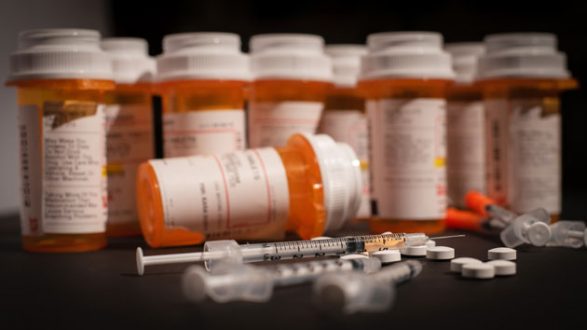
 Darwin Brandis/iStock(NEW YORK) — Federal prosecutors charged pharmaceutical company Rochester Drug Cooperative and two of its former executives Tuesday in a new method of charges for a drug distributor related to the nation’s ongoing opioid crisis.
Darwin Brandis/iStock(NEW YORK) — Federal prosecutors charged pharmaceutical company Rochester Drug Cooperative and two of its former executives Tuesday in a new method of charges for a drug distributor related to the nation’s ongoing opioid crisis.
Rochester Drug Cooperative (RDC), one of the nation’s largest distributors of opioids, has entered into a non-prosecution consent decree with the U.S. Attorney’s Office for the Southern District of New York, which accused the company of failing to properly report thousands of suspicious orders of oxycodone, fentanyl and other controlled substances.
At the same time, the company’s former chief executive, Laurence Doud III, has been placed under arrest by federal drug agents and is expected to appear in Manhattan federal court later Tuesday. He’s believed to be the first pharmaceutical executive associated with the nation’s opioid crisis to face a criminal charge of diverting drugs for an illegitimate purpose.
In the nation’s opioid epidemic, RDC is a middleman that buys controlled substances from manufacturers and sells them to individual pharmacies. As one of the nation’s 10 largest drug distributors, it delivers to more than 1,300 pharmacies. Along the way, federal prosecutors claim, it ignored certain pharmacies that were placing suspicious orders.
“RDC was well aware that many of its largest pharmacy customers exhibited ‘red flags’ associated with the diversion of controlled substances, but failed to report these customers or their orders to the DEA as required,” court records said.
RDC was among the drug distributors named last month in a civil lawsuit by the New York Attorney General’s office, which alleged fraud, willful misconduct and gross negligence.
Between 2010 and 2018, the company sold more than 143 million oxycodone pills to customers in New York alone, the state’s attorney general’s lawsuit said.
The DEA has been investigating for years whether RDC failed to comply with pharmaceutical reporting laws. The company has previously paid to resolve claims it failed to properly report the theft of opioids.
According to court records, from 2012 through 2016, RDC filled more than 1.5 million orders for controlled substances from its pharmacy customers but reported just four suspicious orders to the DEA. In reality, there were at least 2,000 suspicious orders in those four years, federal prosecutors said.
“During this period, RDC shipped large quantities of opioids to pharmacies that RDC knew exhibited dispensing patterns that suggested the pharmacies were dispensing controlled substances for illegitimate medical purposes,” court records said. “They did not report suspicious orders or pharmacy customers to the DEA because they did not want to risk losing revenue from these customers.”
Opioid manufacturers are facing over 1,700 lawsuits over their role in the current crisis. Paul Hanly, co-lead counsel for the plaintiffs in the federal litigation who said he is handling 2,000 cases, welcomed the move by U.S. prosecutors.
“The charges make the civil case against RDC easier to try and provide a potential roadmap to evidence that may prove the civil claims against other distributors,” Hanly told ABC News on Tuesday.
Copyright © 2019, ABC Radio. All rights reserved.










